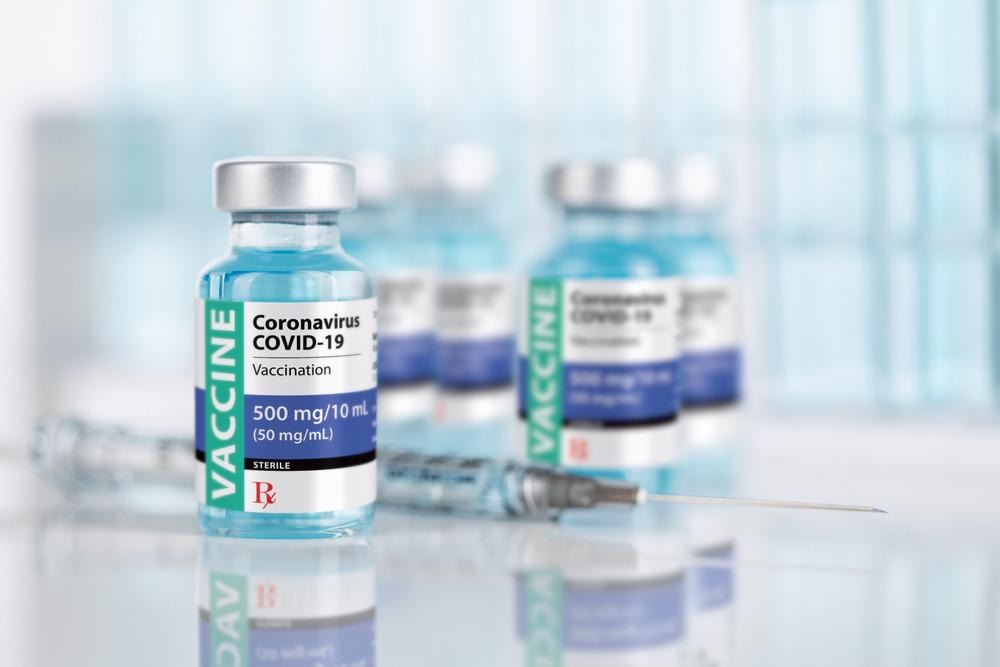Recent evidence on heterologous prime-boost coronavirus disease 2019 (COVID-19) vaccination has shown promising results in terms of inducing robust immune responses against deadly severe acute respiratory syndrome coronavirus 2 (SARS-CoV-2).
Such a vaccination approach is particularly important to alleviate the global storage of vaccines, maximize vaccine coverage, and provide better protection against newly emerging viral variants.

Image Credit: Andy Dean Photography/Shutterstock.com
What is heterologous prime-boost vaccination?
Multiple immunizations with a vaccine are a common and conventional strategy to increase vaccine efficacy (homologous prime-boost vaccination). However, a growing pool of evidence suggests that different types of vaccines containing the same antigen can be used in the form of prime-boost. This strategy is called heterologous prime-boost vaccination.
Ample real-world evidence has shown that heterologous prime-boost vaccination has higher immunogenicity and protective efficacy than homologous prime-boost vaccination.
COVID-19 mass vaccination program
The devastating impact of the COVID-19 pandemic has pushed the entire scientific community to develop safe and effective vaccines against SARS-CoV-2. Several potent vaccines have been made at record speed to control the pandemic trajectory.
The majority of currently rolling out vaccines have shown more than 85% efficacy in preventing SARS-CoV-2 infection, symptomatic COVID-19, hospitalization, and mortality in both clinical trials and real-world pandemic setups.
Among several COVID-19 vaccines, mRNA-based vaccines developed by Pfizer/BioNTech and Moderna and adenoviral vector-based vaccines developed by Oxford/AstraZeneca are considered to be the most effective and have the highest coverage. These vaccines follow a two-dose immunization regimen administered intramuscularly at a fixed interval.
With the progression of the COVID-19 mass vaccination program, several breakthrough infections occurring in fully vaccinated individuals have been detected in many countries across the globe. This could be because of newly emerging viral variants that acquire beneficial mutations in the spike protein to escape vaccine-induced immunity. Another reason could be a gradual loss of vaccine efficacy with time.
Why is heterologous prime-boost vaccination important in COVID-19?
To maximize vaccine efficacy and protection, some countries have started to immunize at-risk populations with a third booster dose. However, a global shortage of vaccine supply and distribution has caused a reduction in the speed of vaccine roll-out, especially in low-income and middle-income countries.
To overcome this shortcoming, many countries have adopted a heterologous prime-boost vaccination strategy to increase vaccine coverage. Currently, high-risk individuals including, older adults aged 65 years and above, healthcare and other front-line workers, and people with comorbidities, have been prioritized for the booster vaccination.
Another potential reason for considering heterologous prime-boost vaccination is the adverse blood clot events (thrombotic thrombocytopenia) that have been observed in a small proportion of individuals after receiving adenoviral vector-based COVID-19 vaccine developed by Oxford/AstraZeneca. This has led to the permanent or temporary suspension of the use of this vaccine in many countries, including the US.
According to the revised public health recommendations, individuals previously immunized with a first dose of the AstraZeneca vaccine have been advised to receive a second dose of an alternative vaccine, preferably mRNA-based vaccines.
Safety and immunogenicity of heterologous prime-boost vaccination
Many clinical studies have been conducted worldwide to investigate the safety, immunogenicity, and reactogenicity of heterologous prime-boost vaccination.
In the UK, a study has been conducted on adults aged 50 years and above who have received a first dose of AstraZeneca vaccine and a second dose of Pfizer vaccine at an interval of 28 days or 84 days.
The findings reveal that systemic reactogenicity (fever, chills, headache, joint pain, fatigue, malaise, and muscle ache) is higher after booster dose in heterologous regimen compared to that in the homologous regimen. However, all the symptoms were mild and short-term and resolved completely after paracetamol intake.
A similar study conducted in Spain has explored the immunogenicity of AstraZeneca-Pfizer prime-boost vaccination regimen in more than 600 people. The findings reveal that people who have received a first dose of AstraZeneca vaccine and a second dose of Pfizer vaccine develop significantly higher levels of anti-SARS-CoV-2 antibodies compared to those who have received two doses of AstraZeneca vaccine.
As mentioned by the scientists, repeated use of adenoviral vector-based vaccines, such as AstraZeneca vaccine, can lead to the development of vector immunity, which together with preexisting adenoviral immunity can significantly reduce the vaccine efficacy with time.
In contrast, RNA vaccines use genetically engineered mRNA to directly induce the host immune system to produce antigen-specific immunity. As a result, antibody responses induced by RNA vaccines are more robust than viral vector-based vaccines.
Besides inducing robust humoral immunity, the heterologous vaccination regimen has been found to provide 68% protection against symptomatic COVID-19. In contrast, a homologous vaccination regimen with AstraZeneca vaccine has been found to provide 50% protection against symptomatic disease.
A study conducted in France has compared the immunogenicity of heterologous vaccination with homologous Pfizer vaccination. This study further reinforces the benefits of heterologous vaccination by highlighting its potency in inducing stronger and more durable immunity than that provided by two doses of Pfizer vaccine.
Studies conducted on high-risk individuals have suggested that heterologous vaccination provides better protection against SARS-CoV-2 infection in immunocompromised patients, including organ transplant recipients, cancer patients, and people with weakened immune systems.
Taken together, current evidence strongly supports the strategy of mixing COVID-19 vaccines to improve the level of protection against SARS-CoV-2 infection and symptomatic COVID-19. Many studies are ongoing to evaluate the durability of protection, as well as to determine whether people with mixed vaccinations need extra booster doses in long run.
References:
Further Reading
Last Updated: Dec 23, 2021